Disrupting Health Care with Ginger.io
By Jon Callaghan, November 28, 2012
In August 2011, we led the Seed round for a small team out of the MIT Media Lab who wanted to use passively collected data from mobile phones to detect and help treat health conditions. They called their company Ginger.io, and their goal was built upon Co-Founder Anmol Madan’s research at MIT, which demonstrated that it was possible to predict an individual’s health status by interpreting passively collected mobile data related to location, movement, phone calls, text messages and time of day. It was a gutsy investment decision: an incredibly smart team pursuing a big, bold vision in an enormous but complex market. Exactly the kind of deal we love.
Since our initial investment, Ginger.io has more than tripled in size, absorbed the Rock Health startup Pipette and opened a San Francisco office in addition to their Cambridge location. They have partnered with Cincinnati Children’s Hospital’s Chronic Collaborative Care Network (C3N) and the Carolinas-based hospital system Novant. They have also received industry recognition with awards from Sanofi’s 2011 Data Design Diabetes contest and Jannsen’s 2012 Alzheimer’s Challenge with their platform targeted at supporting individuals living with those conditions and their caregivers.
And, as they announced today, they have raised a $6.5 million Series A round. As Ginger.io’s first institutional shareholder, we couldn’t be more ecstatic about their banner year.
One of the secrets to Ginger.io’s success in the health care market is that its founders have used their non-healthcare expertise (Co-Founders Anmol Madan and Karan Singh have a PhD and MBA from MIT, respectively) to approach the market in an entirely new way. Using Anmol’s algorithms to passively collect data and infer an individual’s health status—and even suggesting that it can be done, and done well—is a significant disruption of a $2.8 trillion industry.
Ginger.io is extraordinarily inexpensive and far more effective than traditional patient data collection methods. Currently, billion-dollar research and clinical decisions are made based on patient data of dubious, and often poor, quality. Patient-reported outcomes (PROs) are the standard collection method for obtaining information about patient mental, physical and social health status and are used to assess risk, aid in clinical decision-making and serve as endpoints in clinical research for the discovery of new therapies. Despite their importance, PROs are burdensome, incomplete and biased, compromising clinical research and care decisions. Of much more value are healthcare insights drawn from objective data.
Before Ginger.io, getting continuous, objective data about an individual’s health-related behavior required expensive, proprietary hardware, or a full-time team to monitor the patient. Both approaches expensive and improbable. With Ginger.io, for essentially $0, health care providers can track in almost real-time how people are feeling, and are able to gain the same insights into who may be sick at a much lower cost basis.
At True, we love companies that represent what we call “D2”: disrupt the existing business model by democratizing access to technology that was not previously available. Ginger.io is essentially breaking the old health care model of episode -> treatment -> monitor. As healthy people begin to use Ginger.io, they have a better chance of catching when something is wrong earlier, and health care becomes much more about prevention than treatment. It’s a big, big shift, and one we’re proud to be behind.
It has been pleasure working with Anmol, Karan and the Ginger.io team over the past year and a half. Ginger.io is exactly the kind of mission-driven company we love to work with at True, and we are thrilled to continue to support them in this round.
Anmol, Karan and team, congratulations on your Series A! Welcome, Khosla, to Ginger. We look forward to more great things for you all in the year ahead.

